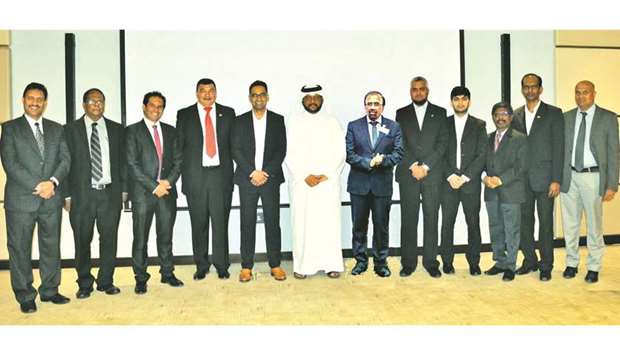Rehan Haque, who is director of Information Security at Mazars (Ahmed Tawfik and Co), a member in the board of directors of ISACA London and panel member Bedfordshire University, made a presentation.
“The challenge is faster digital transformation, which requires us to forcefully adapt and rely on the digital world and new ways of working. The level of trustworthiness to repose will certainly be a cause for concern.” Haque said.
In blockchain technology, a distributed ledger is maintained which is a type of database that is shared, replicated, and syncrhonised among the participants of a decentralised network. Every business transaction made is recorded in a sequential chain of cryptographic hash-link called blocks and distributed on the network which provides access to all network participants. All such blocks are confirmed and validated by the parties involved in the transactions to form a linked and chained block from the beginning to the most current block.
“Blockchain technology can be deployed for payment processing models, banks, and other financial services industry players” said Rajeswar Sundaresan, board member who co-ordinated the event for the IIA.
As many as 24 countries have invested more than $1.4bn in blockchain for innovation. The blockchain is widely seen as the future of all economic transactions; not just for monetary transactions, but for virtually everything of value. The blockchain benefits companies to gain a competitive advantage by integrating business processes. Blockchain technology has the potential to redefine enterprises, ecosystems, and economies. The talk also covered blockchain relationship with crypto-currencies, issues in place, transformational technology, and risk management considerations.

